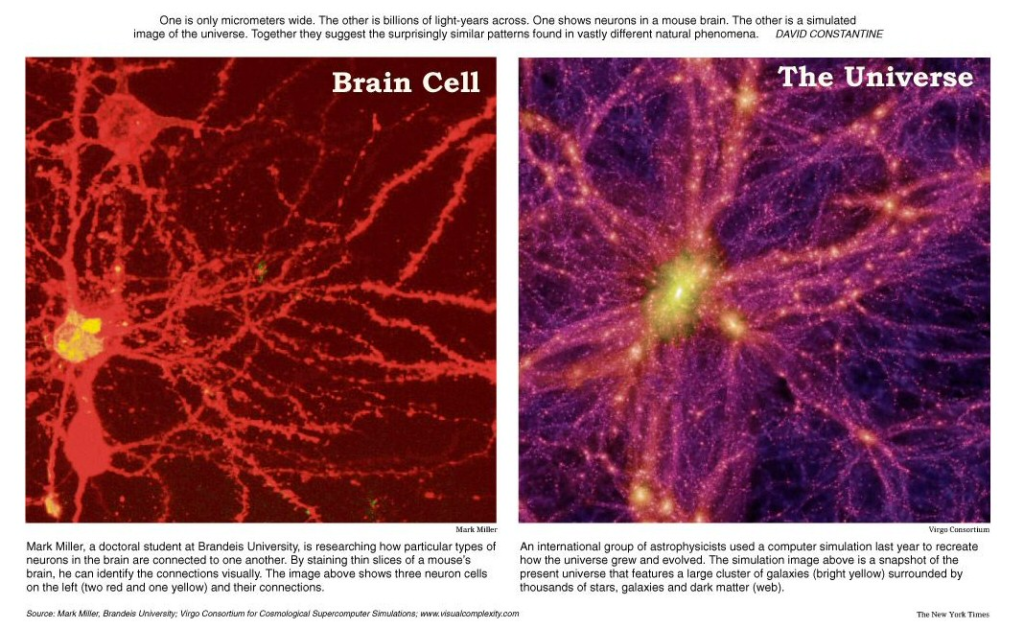TL;DR: We live in an age of nihilism left in the wake of our recent rejection of a God and religion. To find meaning in the world again through some form is a necessity, and being clear on what it is helps us to make sense of the world.
“He who has a why can overcome any how” – Frederick Nietzsche [1]
Introduction
This article is about our belief systems: what they are, why they’re important, and how to develop clear ones.
The motivation for this article is the recent increase in the lack of meaning people are finding in their lives.
This seems to be due to the fact that we believe less in the inherent meaning in the Universe. Our rejection of the old paths to finding meaning through religion, tradition, and God has left a gap in our belief system leading to nihilism – a lack of meaning.
Rather than taking a passive approach to this meaninglessness, take an active approach and build a new belief system for yourself through your own experiences.
Nihilism is equally about having purpose as an individual as it is about seeing purpose to the world. To better understand yourself before you understand the world, consider reading our article on developing self-understanding.
What is Belief?
A person’s collective beliefs dictate their day to day decisions, much like our own personal operating system, which tells us what’s important to pay attention to and what isn’t.
Without this operating system within us allowing us to filter out what’s not important and make us pay attention to what is, we could not function. Everyone has beliefs in some form or another that they unconsciously or consciously derived from their life experiences.
However, believing something isn’t the same as knowing something.
Knowledge, according to Plato, has to be: 1. True, 2. Justified, and 3. Believed [3].
The difference between belief and knowledge is that knowledge is provable. You can believe that the world is flat, but that doesn’t make it knowledge unless you can justify it, and show that it is true.
You can believe that the world has no meaning, but that doesn’t make it true either. Just because we don’t see meaning yet doesn’t mean it’s not there. Sometimes we need to look first.
Nihilism
Merriam Webster defines nihilism as “a viewpoint that traditional values and beliefs are unfounded and that existence is senseless and useless” [6].
The word comes from “German Nihilismus, from Latin nihil, meaning nothing.” [7]
The Universe is estimated to be 7 trillion light years across [8]. It’s almost pointless to try to grasp the size of it, and it’s easy to see why we lose sight of our day to day relevance within it.
We could die right now, and would the course of the Universe really be changed in any meaningful way? We’re just a speck anyway right?
Traditionally, we relied upon belief in a higher power, or a framework like philosophy, religion and tradition to make sense of the large world we are a part of. Recently, however, we seem to have rejected these sources of meaning. [9] With this relatively recent gap in our belief system, it’s easy to see why nihilism is an increasing problem, along with a plethora of mental health issues.
Google Insights for the search term: “What is the point of life” from January 2004 to January 2020.
A quick Google Trends check on the search: “What is the point of life” shows that people are increasingly searching for meaning in their lives. This means that collectively, we’re experiencing the pressure of nihilism, and have two options.
The first is to leave this gap in meaning and continue to not truly believe in anything, which is passive nihilism.
The second is to start fresh by building values as we learn from our experiences, which is called active nihilism. [10]
Why Should I Form Clear Beliefs?
We all have certain beliefs, but if someone were to ask you, “What do you believe in?”, or “What do you live for?”, would you be clear on your answer? Beliefs act as a compass as we navigate life, helping us to take direction through our decisions, and clear beliefs help us make clear decisions.
Without a belief system, you live in a state of chaos.
Things that happen to them don’t make sense – there is no ordered system in which to understand them. Furthermore, motivation comes from doing things that matter. If you live in a world that doesn’t matter, why do anything?
The only constructive path forwards seems to be active nihilism, in other words figuring it out.
In reality, nihilism is an opportunity because it allows us to construct a pure view of the world from our own experiences rather than be force to accept a system we don’t like.
For those looking for more scientific evidence of the benefits of belief, there have been many studies done on the health effects of religion and belief systems. The following list is research showing the effects of those who believe in a religion, and regularly practice [12]:
- In 2006, the American Society of Hypertension established that church-goers have lower blood pressure than the non-faithful.
- in 2004, scholars at the University of California, Los Angeles, suggested that college students involved in religious activities are more likely to have better mental and emotional health than those who do not.
- in 2006, population researchers at the University of Texas discovered that there is a seven-year difference in life expectancy between those who never attend church and those who attend weekly.’
- American Journal of Public Health, which studied nearly 2,000 older Californians for five years. Those who attended religious services were 36 per cent less likely to die during this half-decade than those who didn’t.
- In 1990, the American Journal of Psychiatry discovered believers with broken hips were less depressed, had shorter hospital stays and could even walk further when they were discharged compared to their similarly broken-hipped and hospitalised, but comparatively heathen peers.
- A 1999 study found that going to a religious service or saying a few prayers actively strengthened your immune system.
- These medical benefits accrue even if you adjust for the fact that believers are less likely to smoke, drink or take drugs.
- In 1998, the American Journal of Public Health found that depressed patients with a strong ‘intrinsic faith’ (a deep personal belief, not just a social inclination to go to a place of worship) recovered 70 per cent faster than those who did not have strong faith.
- They discovered that many of the health benefits of religion materialise only if you go to church regularly and have good friends there. This suggests a strong social aspect to the benefits above. Perhaps the most important part about forming clear beliefs is sharing them with others.
How Do I Form Clear Beliefs?
Below are some excellent avenues to delve into if you want to make sense of the world, to “get what’s going on” and form clearer beliefs.
The three methods here are: philosophy (including science), religion or spirituality, and the arts. These aren’t the only ways to find meaning; find what resonates with you.
To actually use these avenues to form beliefs, you need to work at learning regularly, and use your own unique judgement on what you learn. It helps to take notes of some kind to remember what you have learned and to read these notes regularly.
Philosophy
Philosophy is the study of “general and fundamental questions about existence, knowledge, values, reason, mind, and language.” It is based on the Greek word philosophia, meaning love of wisdom [13].
Out of these four ways of forming beliefs, this is the most scientific.
A dominant way that the West tries to make sense of the world is through scientific understanding. We don’t reference religion as reasons for doing things or believing things anymore. Science is the new religion.
Most people don’t realize that physics, chemistry, biology, psychology and other scientific categories of study are the children of philosophy, and these fields were sub-categories until they became their own study.
Going back to the roots of how we understand things using philosophy can help us to broaden our horizons and tie things together.
The philosophy that focuses most on forming beliefs to act on is moral philosophy – which tells us at the end of the day, what to do.
All philosophies relate back to moral philosophy since the purpose of becoming wiser through philosophy is to make wiser decisions. A good example of this is stoicism, which essentially tells one to only worry about things in one’s control. Finding a philosophy, or group of philosophies like stoicism that resonate with you can help make sense of the world.
If you settle into a certain area of science, no matter what it is, you can find meaning everywhere.
For example, one can even relate distant concepts of a science like astronomy dealing in light years with biology dealing in micrometers. See the image below showing similarities between a brain cell image and a constructed image of a very zoomed out view of the Universe.
Is it coincidence, or do these patterns indicate a relation between the smallest levels of our Universe to the largest? Is the Universe one, interconnected being? Is the Universe alive and “thinking” like our brains, and are we a part of this process mirrored in it at a smaller scale? Does this related to the Bible passage stating that man was made in God’s image?
Of course this is just an idea, but it illustrates the point.

Religion
“Religion is a social-cultural system of designated behaviors and practices, morals, worldviews, texts, sanctified places, prophecies, ethics, or organizations, that relates humanity to supernatural, transcendental, or spiritual elements” [17]
No talk of Religion would be complete without talk of God(s). Each culture has its own God or Gods. It seems that the purpose of God in religion is to represent nature, or the Universe, in a personified way such that we can relate to and understand it better.
Even non religious philosophies like Stoicism have a God, which they call nature, and nature dictates over everything outside of one’s control. A conception of God helps to understand the world in a simpler way, even if you don’t call it God.
This is the world’s estimated religious breakdown as of 2015:
Each religion also has a religious text, or multiple texts, that outline their beliefs. Understanding the messages in these texts can be a great source of beliefs distilled down over thousands of years and there may be many that resonate with you.
It’s also interesting to note that the book with the most copies printed and sold in the last 50 years is a religious book (the Bible) by a large margin [19]. Clearly, there is still relevance in the messages of these ancient texts.
The Arts
“The arts refers to the theory and physical expression of creativity found in human cultures and societies including visual arts, literature, and performing arts.” [20]
Visual Arts
Visual art is rich with meaning, and dates back further than we could write. If you are more of a visual person, consuming great works of art can be a way to find how others see the world.
One meaning that could be taken from Micaelangelo’s painting “The Creation of Adam ” is that the membrane surrounding God represents a brain, and that he reaches humanity (Adam) through it, if only barely.
Literature
Each culture has works of writing that record important viewpoints from great people within that culture.
For the Western world, one such record of these writings is the Western Canon, defined as “the body of high culture literature, music, philosophy, and works of art that is highly valued in the West: works that have achieved the status of classics”.
Delving into works like these helps us to find perspective through the most important ideas of those who lived before us.
Myths are a body or collection of stories belonging to a people and addressing their origin, history, deities, ancestors, and heroes [22].
Mythology is rich with history since it comes from periods before we could write, when we passed down information through spoken stories. We also used images like paintings and symbols to record certain ideas we wanted to communicate before we could write.
Carl Jung, a psychologist, even proposes that our subconscious communicates with our conscious mind using symbols – and that you can even analyze these using dream analysis.
Performance Arts
Shakespeare is perhaps the most famous writer of performance arts. For instance, his monologue from Hamlet: “to be or not to be” seems to probe the beliefs surrounding the choice to live, though there are many interpretations.
Many deep beliefs are questioned through plays like these, and the performance aspect of these works of arts lends a unique aspect to them that may speak to you.
Takeaway
At the end of the day, as long as you find some way to develop your beliefs, and you’re clear on what they are, then you have a basis for building a life of order. Even if your beliefs are just starting to make sense to you, that’s a great start. Over time, your understanding will compound if you consistently work at it.
Belief is Not Enough
So far, this article has been about forming beliefs, however even with all of right beliefs, they won’t help us without meaningful action.
It’s not just our view of the world, but our role in it – or lack of one – that causes us to feel meaningless. It takes belief that the world is meaningful, and belief that we are a meaningful part of it to feel good.
Consider reading our articles on building and breaking habits, autosuggestion, and aiming to achieve rather than please to help you become meaningful after seeing meaning in the world.
Summary
Many people now lack meaning in their lives because they don’t know what to believe in. This can lead to nihilism, but the response to nihilism can be either constructive, or destructive.
Constructive nihilism is achieved by forming your own belief system. Some methods to do so are through philosophy, religion, and the arts, but the method ultimately comes down to what makes sense to you.

References:
[1] https://suicideproject.org/2017/12/purpose-6/
[2] https://www.mirror.co.uk/news/world-news/entire-universe-could-pictured-once-7124664
[3] https://spiritualray.com/understanding-difference-between-knowledge-belief
[4] https://en.wikipedia.org/wiki/Plato
[5] https://kaiserscience.wordpress.com/physics/the-scientific-method/relativism-truth-and-reality/
[6] https://www.merriam-webster.com/dictionary/nihilism
[7] https://www.merriam-webster.com/dictionary/nihilism
[8] https://www.space.com/24073-how-big-is-the-universe.html
[9] https://www.dailymail.co.uk/sciencetech/article-3504254/Is-religion-dying-Fewer-people-believe-God-30-years-ago-millenials-likely-faith-afterlife.html
[10] https://www.nihil.org/nihilist/nihilism
[11] https://churchpop.com/2014/12/11/21-mesmerizing-photos-of-the-worlds-most-beautiful-churches/
[12] https://www.dailymail.co.uk/femail/article-1358421/The-tantalising-proof-belief-God-makes-happier-healthier.html
[13] https://en.wikipedia.org/wiki/Philosophy
[14] https://en.wikipedia.org/wiki/Philosophy
[15] http://artsmart13.blogspot.com/2011/02/school-of-athens.html
[16] http://sprott.physics.wisc.edu/pickover/pc/neuron-galaxy.jpg
[17] https://en.wikipedia.org/wiki/Religion
[18] https://www.weforum.org/agenda/2017/04/christians-are-the-worlds-largest-religious-group-but-theyre-dying-out-in-europe
[19] https://relevantmagazine.com/current/bible-tops-list-most-read-books-world/
[20] https://en.wikipedia.org/wiki/The_arts
[21] http://www.framedartpictures.com/product-images/AMACAARQ-P26320.jpg
[22] https://www.wordnik.com/words/mythology
